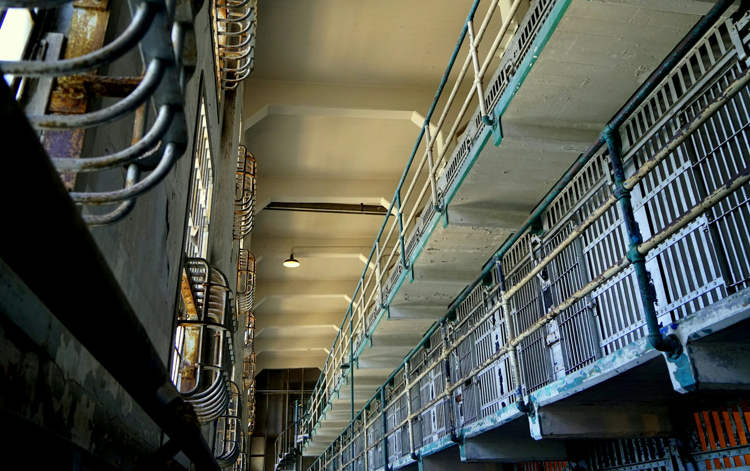Former gambler and businessman M.C. Davis placed the biggest bet of his life about 20 years ago when he decided to spend a considerable chunk of his fortune on nature. Over the past two decades, he spent $90 million purchasing thousands of acres of land all over Florida. And the risk paid off – he managed to revive forests and swamps across the state, saving several wildlife species in the process. Although he tried to do his conservation work without attracting too much attention, the positive effects of Davis’ efforts could not go unnoticed forever. Last year, he was featured in Smithsonian Magazine and on the National Public Radio website, and his story went viral.
Having grown up in a cramped trailer on a dirt road in the Florida Panhandle, Davis set out to make a fortune at a very young age, becoming a self-proclaimed gambler and hustler. He made hundreds of millions of dollars, but it took a simple traffic jam to bring about the epiphanic moment that would change the course of his life forever. “It’s drizzling rain, and I was just sort of frantic with exasperation,” he told NPR. “Stuck in traffic, and I looked up, and I saw on the marquee of the high school, ‘Black Bear Presentation’. Intrigued, he decided to pull over and attend the event.
At the time, Davis didn’t even know that Florida had black bears, but the lecture made by two women of the Defenders of Wildlife piqued his interest – the very next day he donated enough money to keep the Defenders campaign alive for two years. He also began to read more books written by environmentalists, and kept in touch with Laurice MacDonald, one of the Defenders that had oipened his eyes. “He had the steepest learning curve,” MacDonald later said. “We would begin with little debates. They were a little testy but fascinating.”

Photo: Nokuse Plantation/Facebook
Before long, Davis realised that he had found his calling – he would devote his vast fortune to conserving nature. He started by purchasing land from timber companies and restoring it to longleaf pine forests by planting seedlings. “I’d never even heard the word longleaf,” Davis joked. He bought bat caves in three other states to save their inhabitants. He bought strips of land on either side of a Florida highway, and built an underground crossing for freshwater turtles. And he added thousands of acres to national forests and wildlife refuges in the South.
Davis’s experience of gambling came in very handy while negotiating these deals. One of his brilliant tactics was to keep his plans under wraps until each deal went through. While other conservation groups tend to advertise their intentions, resulting in jacked up prices, Davis would pose as a timber businessman interested in the land, negotiating the best possible price. Only after the deal was done did he ever reveal his real intent. “He was very good at staying quiet,” said his son-in-law, Pat Chisholm. “He was always telling us, ‘Don’t tip your hand.’”

Photo: Nokuse Plantation/Facebook
Now, 20 years later, his 53,000-acre Nokuse Plantation is the largest block of privately owned conservation land in the Southeastern United States. He planted over eight million seedlings, and the lush forest that resulted is now home to an abundance of wildlife – foxes, raccoons, armadillos, bobcats, ospreys, eagles, among others. Along with the longleaf pine, the Nokuse Plantation is home to a variety of ecosystems like wiregrass, sandhills, flatwoods, savannahs, steephead ravines, blackwater creeks, and ephemeral wetlands.
Davis’s efforts have led to the rescue of several other species – most recently, a group of 11 gopher tortoises were saved from a construction site and given a new home in the reserve. The tortoises were an endangered species, destroyed by loss of habitat and eaten for meat. Several other endangered species have been given a home at the reserve too. According to the Nokuse website, “The gopher tortoise is called a keystone species because their burrows serve as important refuge for more than 360 other animals (vertebrates and invertebrates) in the longleaf pine community.”

Photo: Nokuse Plantation/Facebook
Sadly, M.C. Davis was diagnosed with stage 4 lung cancer and passed away in July last year. Refusing to die in a hospital bed, he slipped away quietly from his family and killed himself in a secluded spot of the pine woods he loved so much. However, he had always envisioned his wildlife restoration project to be a 300-year plan, so his work to save nature will carry on without him.
In one of his final statements, he revealed that he was leaving most of his fortune to the conservation trust and to the environmental education center that caters to thousands of Florida school children each year. “That is the purpose,” he said. “If there’s such a thing as being perpetual – this will be here. No matter how stupid our species gets and how much it degrades this, it will start over.”

Photo: Nokuse Plantation/Facebook
“But I’m hoping that we’re capable of leaving some huge biological warehouses that – if and when our country fails, and all of them do sooner or later – that hopefully the impacts wouldn’t be total. That nature doesn’t have to start from scratch.”
Public access to Davis’ Nokuse Plantation is limited for conservational purposes but access is possible via the Florida National Scenic Trail, and thousands of children come through the plantation’s education center every year to learn about the importance of preserving plant and wildlife.
Sources: Tampa Bay Times, Treehugger, MNN






